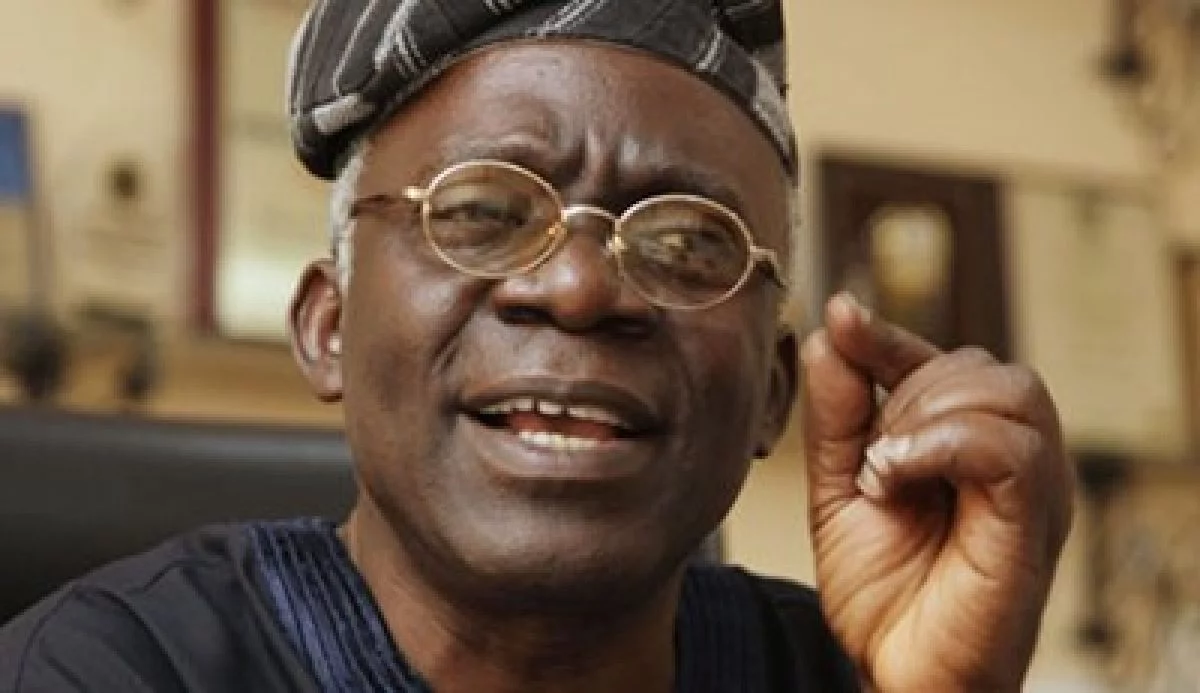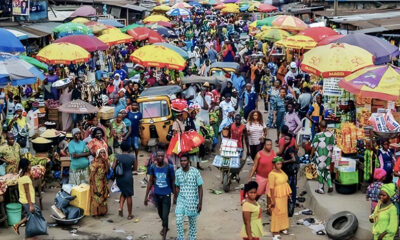BUSINESS
Falana: World Bank, IMF Insisted On Fuel Subsidy Removal

In a scathing critique of President Bola Tinubu’s economic policies, prominent human rights activist and Senior Advocate of Nigeria, Femi Falana, has once again stated that the full removal of Nigeria’s fuel subsidy was not an independent domestic decision. Speaking on a national television program, Falana argued that the directive came directly from global financial institutions, namely the World Bank and the International Monetary Fund (IMF). His assertion is part of a broader argument that the Nigerian government, in an attempt to stabilize its economy, is caving to external pressure at the expense of its own citizens. For millions of Nigerians facing the daily realities of rising costs, Falana’s words resonate deeply, as they articulate a widespread suspicion that the hardship they are enduring is a result of policies imposed by powerful international bodies. The debate over who holds the ultimate influence over Nigeria’s fiscal decisions highlights a complex power dynamic that has been at play for decades.
The Global Subsidy Debate
Falana’s argument is rooted in the principle that subsidies are a universal economic tool, and no country, including the most developed nations, has completely eliminated them. He pointed out that leading Western countries such as the United States 🇺🇸, the United Kingdom, and France continue to subsidize vital sectors of their economies. For example, the European Union’s Common Agricultural Policy provides significant subsidies to farmers to ensure food security and maintain rural economies. Similarly, the United States offers various subsidies for agriculture, renewable energy, and even certain housing initiatives. These subsidies are often viewed as strategic investments aimed at protecting domestic industries, ensuring national security, and providing a safety net for citizens. Falana’s point is that while the Nigerian government claimed to be fully removing its fuel subsidy, it was doing so in a context where its international partners maintain similar, albeit differently structured, support systems for their own people. This comparison exposes a perceived double standard, fueling the narrative that Nigeria is being held to a different standard by the very institutions it seeks financial aid from.
The Troubled History of Nigeria’s Fuel Subsidy
While Falana points to external influence, the history of Nigeria’s fuel subsidy tells a story of an internal system that had become deeply unsustainable. The subsidy system, first introduced in the 1970s, was designed to stabilize pump prices and shield citizens from the volatility of the global oil market. However, over the years, it spiralled out of control, becoming a conduit for massive corruption and a major drain on the national treasury. By 2022, the cost of the subsidy had ballooned to an unsustainable ₦4 trillion, representing nearly a quarter of the country’s entire budget. This financial burden meant the government had less money to invest in critical sectors like education, healthcare, and infrastructure. In addition to the exorbitant cost, the subsidy created a lucrative illegal trade, with smugglers diverting subsidized fuel to neighboring countries where prices were significantly higher. This not only cost the government revenue but also created artificial fuel scarcity within Nigeria. The subsidy had become a political hot potato 🥔, with successive governments making attempts to remove it, only to be met with widespread public protests and resistance due to fears of the inevitable hardship.
The Role of International Financial Institutions
The IMF and World Bank have long maintained a consistent stance on Nigeria’s fuel subsidy, viewing it as an inefficient and economically harmful policy. In their various reports and consultations, they have consistently recommended that Nigeria phase out the subsidy to free up fiscal space and allow for more productive investments. The argument from these institutions is that subsidies disproportionately benefit the wealthy and organized criminals, and that the funds would be better used in targeted social programs. While the institutions officially state that their role is purely advisory and that the decision to remove the subsidy was a sovereign one, their recommendations carry significant weight. Nigeria relies on these institutions for loans and development assistance, and adherence to their policy advice is often a prerequisite for financial support. As such, Falana’s claim that they “insisted” on the removal, while a strong word, reflects the reality that the Nigerian government was operating within a framework where subsidy removal was a key condition for receiving international financial backing. This a classic dilemma faced by many developing nations seeking assistance from these powerful organizations 🌍.
The Impact on Nigerians
The sudden declaration on May 29, 2023, by President Tinubu that “fuel subsidy is gone” sent shockwaves through the country. The immediate impact was a sharp increase in the price of petrol, which in turn triggered a domino effect across all sectors of the economy. The cost of transportation skyrocketed, leading to a massive increase in the price of food, goods, and services. For millions of Nigerians already struggling with low wages and high unemployment, the inflation has been devastating, pushing many into deeper poverty. The government has argued that the initial hardship is a necessary pain for long-term economic stability, promising to redirect the funds saved to essential public services. However, for the average citizen, the immediate suffering has been more tangible than the promise of future benefits. The government has attempted to mitigate the impact with cash transfers and wage awards, but many critics, including Falana, argue that these measures are insufficient and have not effectively cushioned the blow. The policy has created a profound social and economic chasm, pitting the government’s economic vision against the daily struggles of its people.






